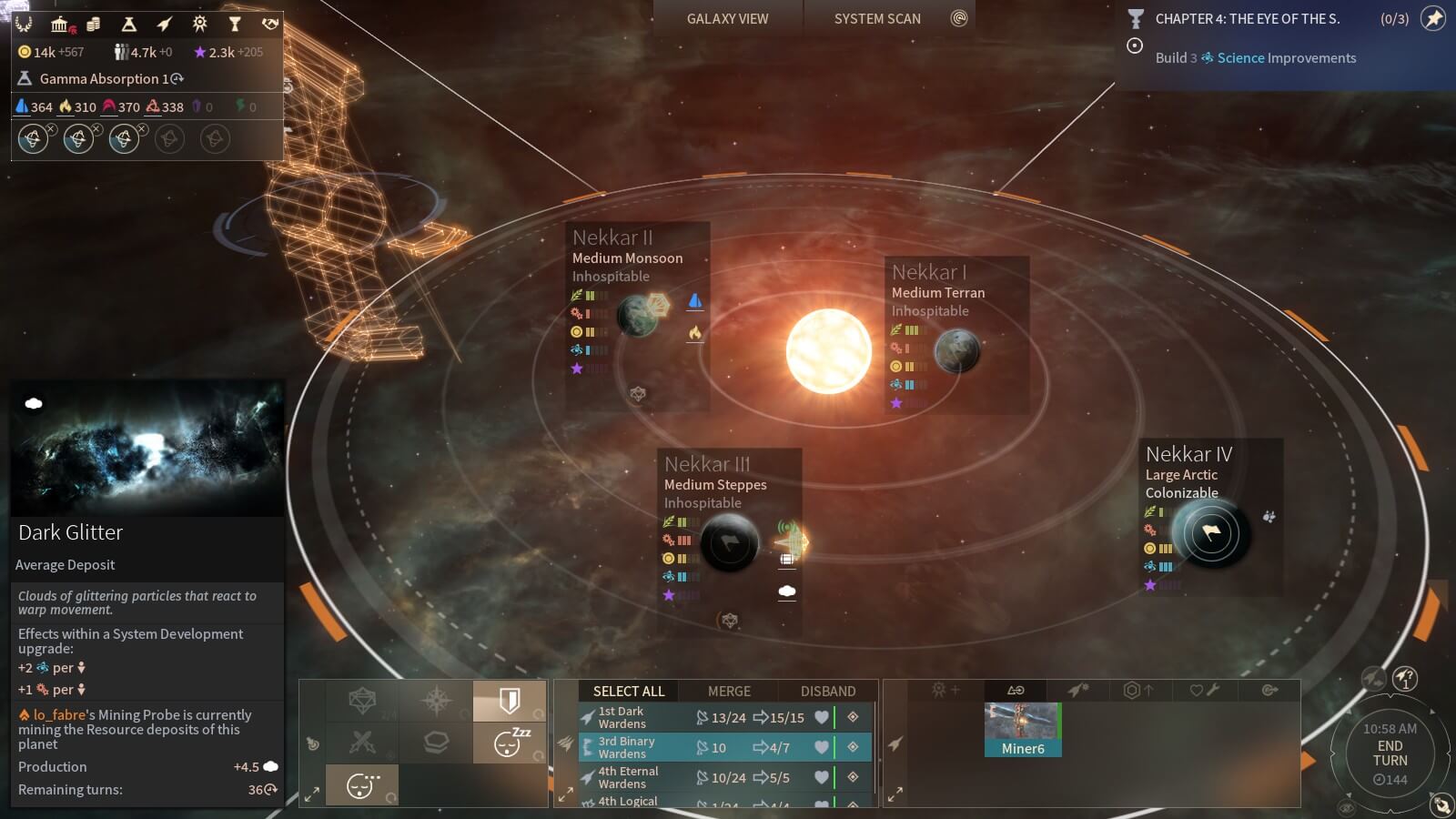

Keeping that in mind, I can see how automation would potentially be attractive to people who literally want to completely scan a system before moving on, or who don't care which anomalies (with which %chance of results) they check could want automation. As has been said, there's no need to probe every single anomaly, and if exploration is the goal it can be a downside. The most key mentioned above was the choice between exploring more/developing more/probing more, but in particular I'd like to point out that since probes regenerate at a rate, and are limited, what I normally do is move to a system, probe it to the max (which sometimes includes sending them out in a direction), then go to a new system, by which time some probes will regenerate. There are a lot of benefits to keeping it manual.

All it does is slow turns down to no particular benefit. If there were something more to it, like having to balance a chance of failure or negative outcome, then it would be fine (although the interface still needs work), but as it stands there is no reason for it to be manual. The probde system is just busy work there is no practical benefit to manually controlling it except where you have missions that invovles doing particular anomaly types, and a prioritization interface to the automation takes care of that. Effort created by making a system unnecesarily manual-control intensive when it's just busy work should not. Effort put into strategy, planning, and tactics should be encouraged. The idea of anomalies is fine, but the current execution is not.


 0 kommentar(er)
0 kommentar(er)
